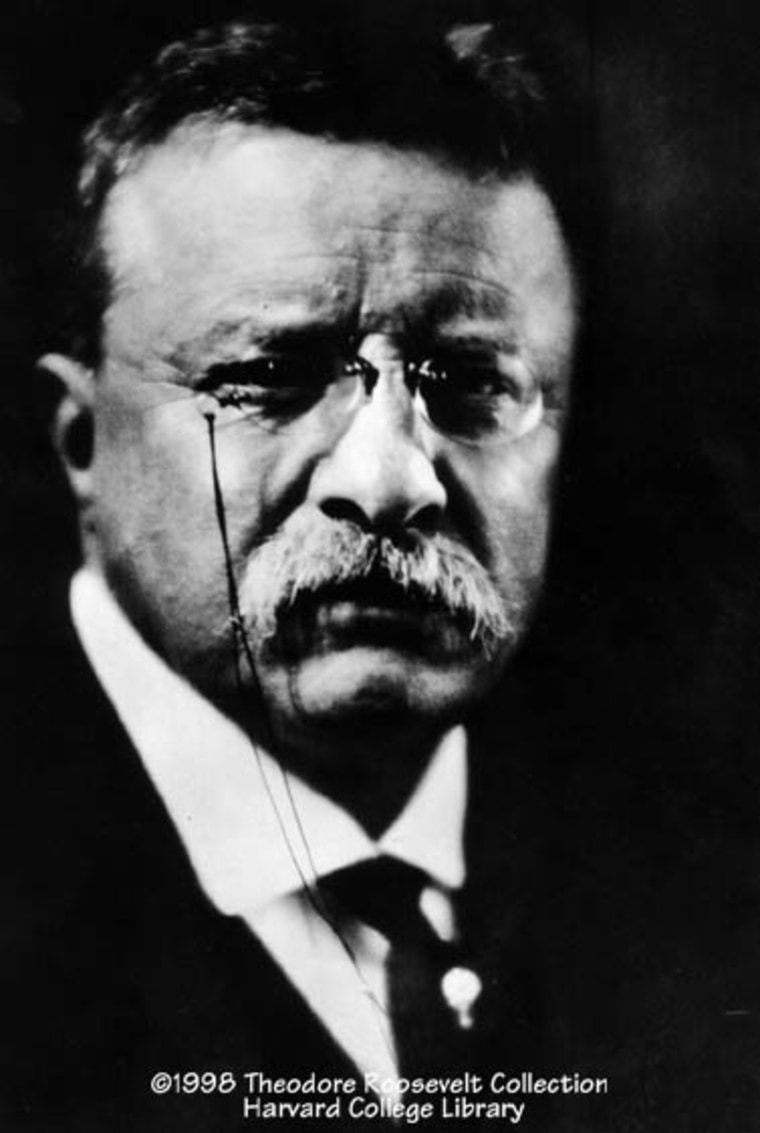With its long days and endless pressures to restore everything from economic crises to world peace, the job of president of the United States is stressful and usually thankless. And yet, every four years, plenty of candidates are crazy enough to devote their lives to getting votes.
Craziness might not be the most scientific word for it. But a new study found that those who do well as presidents tend to score high on measures of a personality trait that they share in common with psychopaths.
The trait, known as fearless dominance, describes people who are socially and physically bold, as well as emotionally resilient — an outlook on life well summarized by Teddy Roosevelt’s motto: “Speak softly and carry a big stick.” Throughout our nation’s history, the study found, bold presidents seem to have been particularly persuasive, driven by vision, and good at managing crises.
PHOTOS: Shockingly Close Presidential Elections
Presidents aren’t psychopaths, nor should they be, emphasized lead author Scott Lilienfeld, a psychologist at Emory University in Atlanta. Instead, his research suggests that certain traits associated with psychopathy may give people a leg up in some situations.
“Most psychopaths end up being pretty unsuccessful and maladaptive, and they end up in prison, which is usually where psychologists study them,” Lilienfeld said. “Even though the psychopathic personality as a whole shebang is not a good thing to have, this study raises the interesting possibility that at least some traits of this condition — especially those linked to lack of social and physical apprehensiveness, immunity to stress, and resilience — might be adaptive in real-world settings.”
“Is it good to have a psychopathic president?” he added. “The answer to that is easy: It’s no. But maybe having a certain dash of those traits might give presidents a certain edge.”
Psychopathic personality, in psychological terms, refers to a collection of traits that include superficial charm, a self-centered attitude, a tendency to take risks, dishonesty, lack of guilt and empathy, poor impulse control, immunity to anxiety and fearlessness. All together, this is generally not a good combination of characteristics to have.
NEWS: Why Do Negative Political Ads Work?
But previous research has raised the possibility that at least some of the traits associated with psychopathy might also help people succeed in some situations, including in business, politics and high-risk sports. Fearlessness and boldness, in particular, seem like they should be useful in many of these settings.
To test that possibility, Lilienfeld and colleagues tapped into a database of personality traits assessed by living experts on the 42 U.S. presidents leading up to and including George W. Bush.
Presidents that scored high on measures of fearless dominance, the researchers reported in the Journal of Personality and Social Psychology, were also considered to be among the most high-performing leaders our country has had.
Although the data didn’t allow for precise comparisons, Theodore Roosevelt received the highest boldness scores. Nicknamed the “Cyclone Assemblyman,” Roosevelt was a war hero and powerful leader, willing to take on big companies and other issues that his predecessors were too timid to touch.
On the flip side, the least bold and fearless presidents included William Taft and Millard Fillmore.
“Presidents you might regard as forgettable were among the lowest,” Lilienfeld said. “These are the ones people say, “Oh, was he president? Oh yeah.”
NEWS: Conservative Candidates Are Often Better-Looking
The study didn’t analyze the personalities of President Barack Obama or Mitt Romney, though Lilienfeld guessed that neither one would score particularly high or low on measures of fearlessness. New Jersey Gov. Chris Christie, on the other hand, would likely rank on the high end.
The new findings parallel the idea of “creative genius,” in which madness and brilliance find common ground, said Dean Keith Simonton, a psychologist at the University of California, San Diego. In both cases, a trait that can be “bad” in one setting ends up being “good” in another.
Unfortunately for those who are looking to predict results of the upcoming election, dissecting the personalities of successful presidents of the past doesn’t help predict who will win in the future, Simonton said. Highly intelligent presidents do best once they’re in office, for example, but they find it harder to get elected.
More than personality, luck often determines whether a presidential candidate is in the right place at the right time, given the state of the economy and other hot-button factors.
“Personality counts, but it's not the most attractive traits that count the most,” Simonton said. “Sometimes vices can be virtues when a person occupies a unique niche.”
